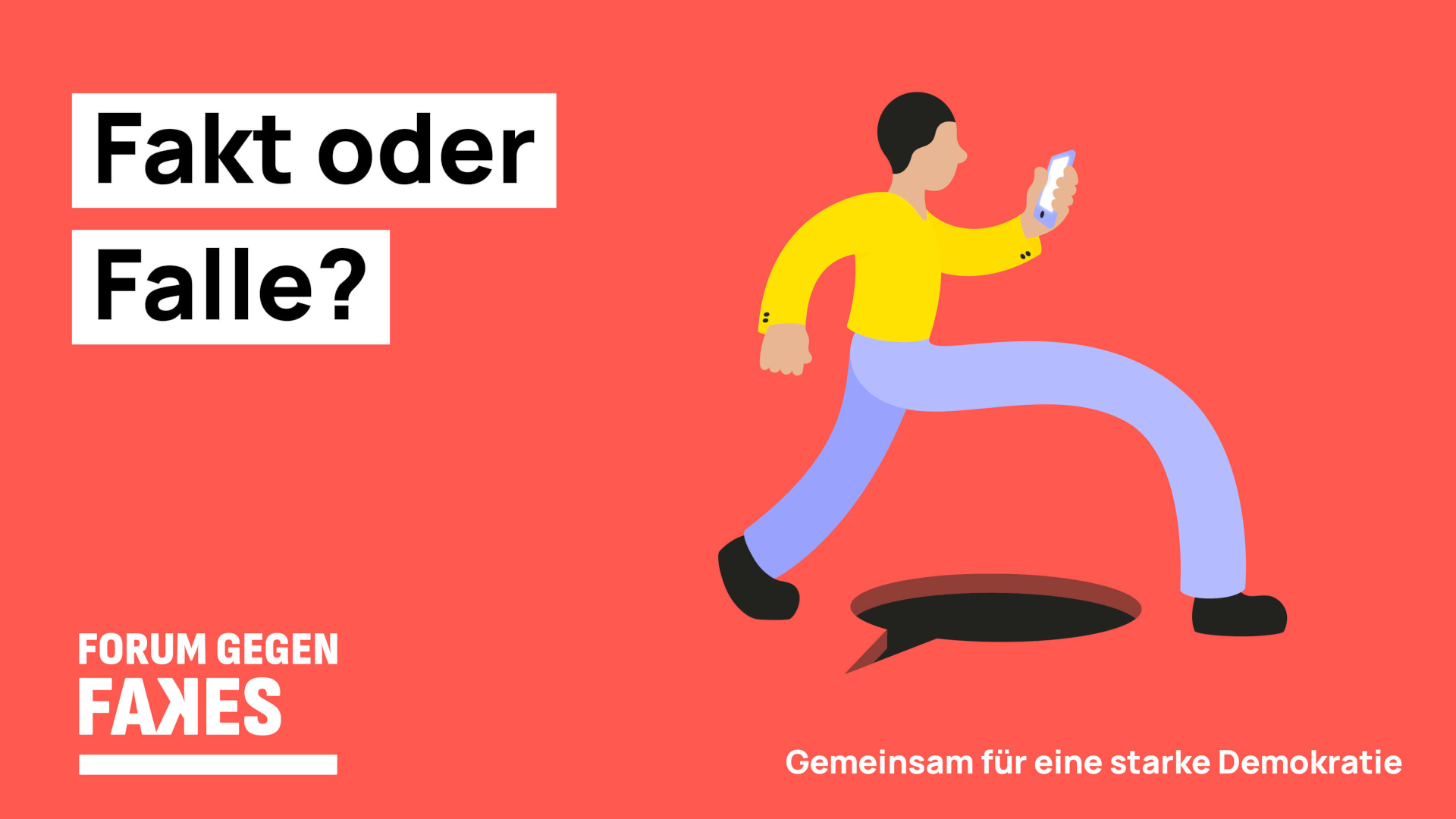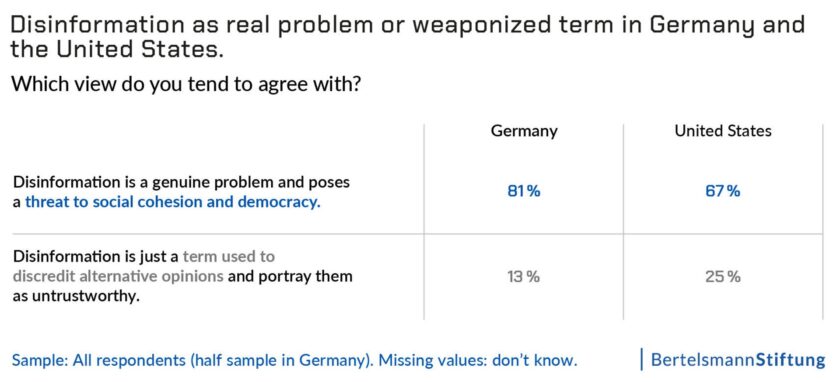Respondents are most likely to perceive fake news on social media. Four out of five Germans believe that the spread of disinformation endangers social cohesion. According to a recent Bertelsmann Foundation study, 81 percent of Germans see the spread of disinformation on the Internet as a threat to democracy and social cohesion. An overwhelming majority of the population fears election influences and divisions in society.

Study: Fake News as a Threat to Democracy
Social media is the place where respondents most often perceive disinformation, followed by blogs and messenger services. Two thirds suspect protest and activist groups as the source of the misinformation, followed by bloggers and influencers (60 percent), foreign governments (53 percent) and politicians and parties from Germany (50 percent).

Greater awareness of the problem in the US
Data from the survey also make it possible to draw comparisons with the United States. Uncertainty about the truthfulness of content and the belief that disinformation is being spread are more pronounced there than in Germany. “Respondents in the US are more likely to blame politicians and political parties for disinformation, viewing the opposing political camp as the source. This reflects the polarization present in the US, which has become evident again and again in election campaigns,” says Kai Unzicker, our expert for social cohesion and the study’s co-author
Germany’s largest DooH media owner Ströer is supporting the “Forum against Fake” campaign on screens nationwide. We at invidis are fully supportive, as most “published” information in the ProAV and digital signage industry is shared in social media rather than thoroughly researched and published by professional editorial teams.

